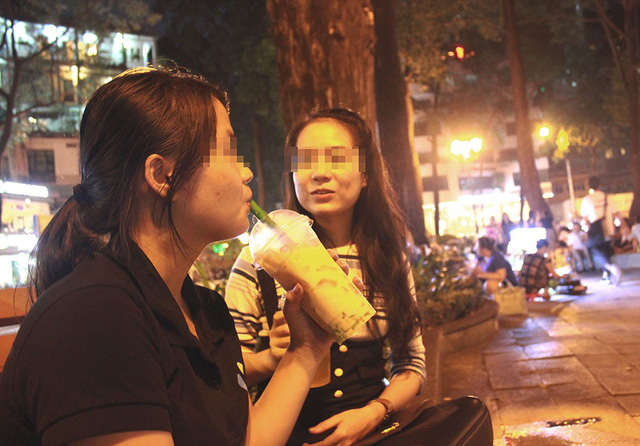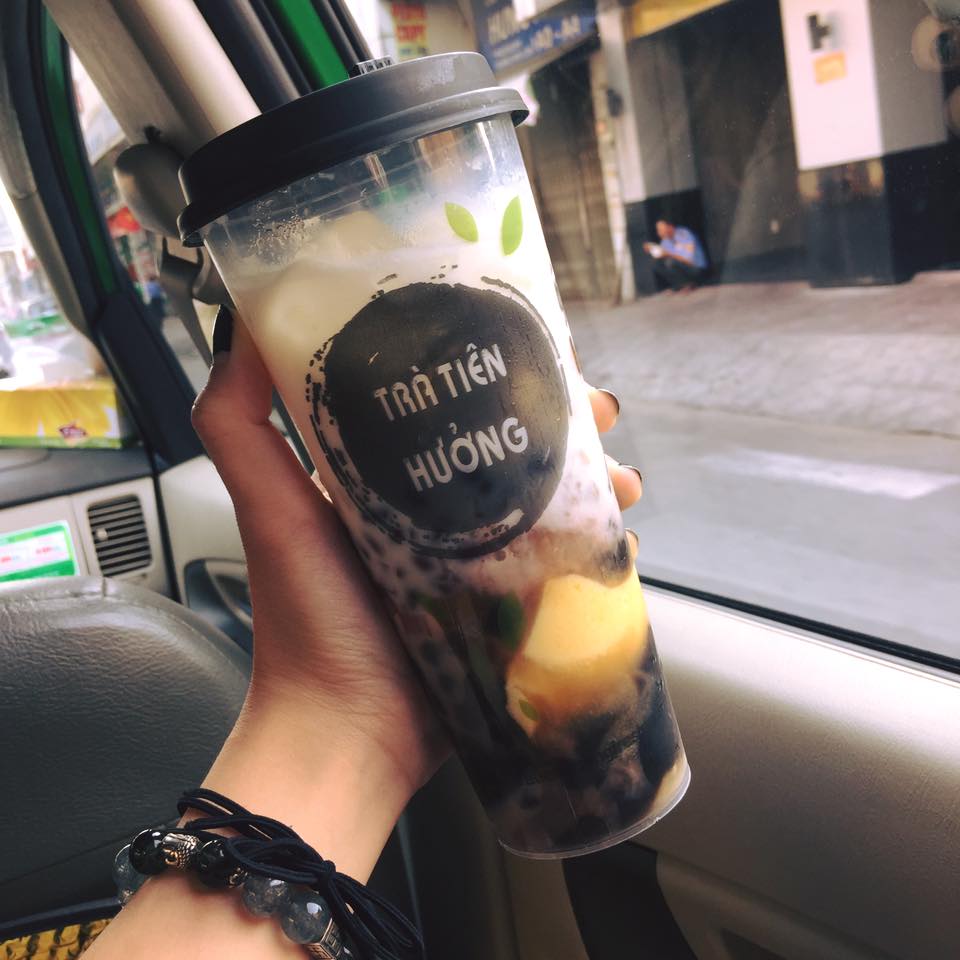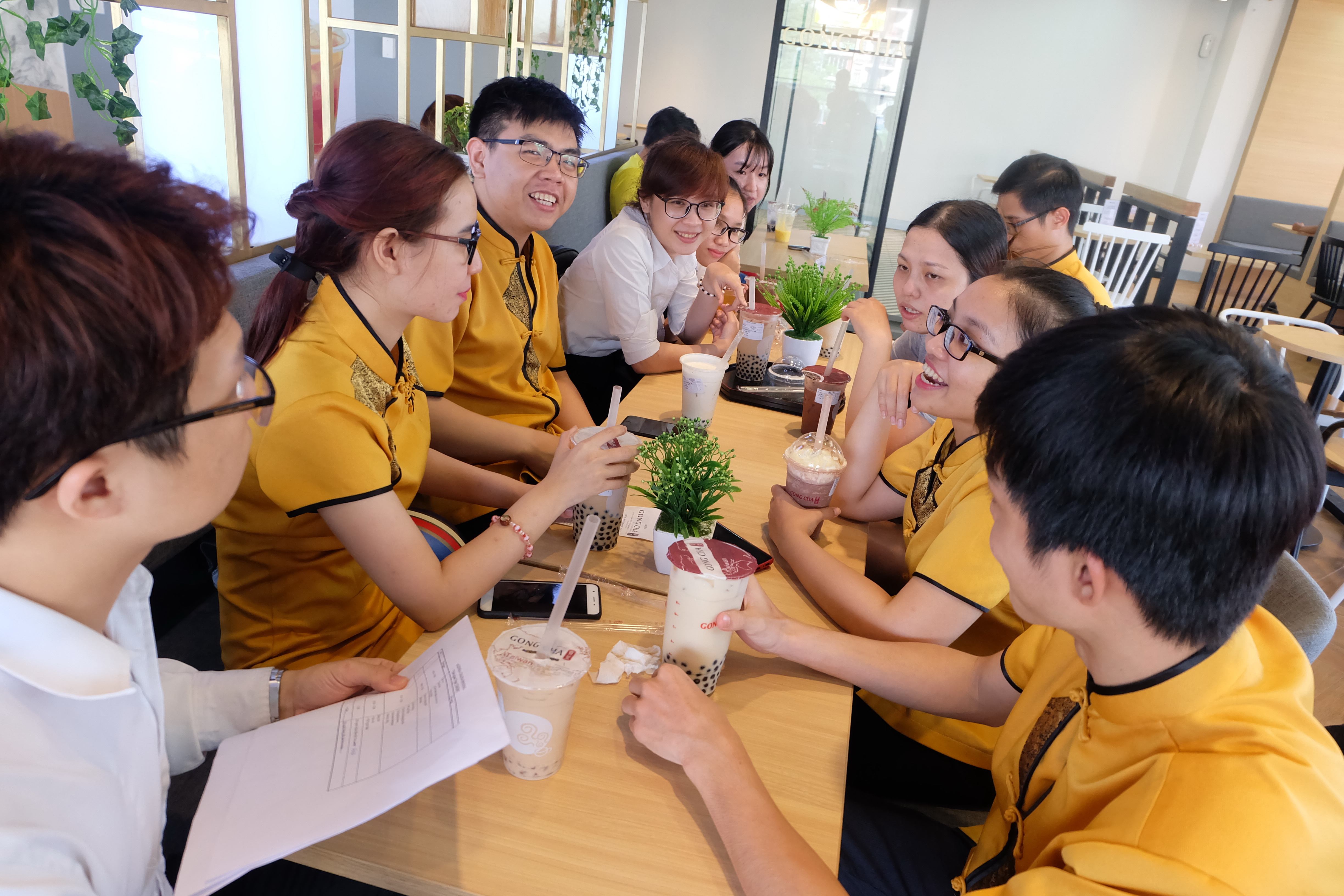A massive amount of milk tea in Vietnam’s major cities is produced using fake ingredients, with health specialists agreeing that these unidentified additives only contribute to other side-effects of long-term milk tea consumption, such as obesity, kidney failure, and even infertility.
The milk tea craze is sweeping the country, leaving locals of all age groups and professional backgrounds flocking in droves to the growing number of vendors popping up throughout Vietnam to satisfy its cravings for the sugary drink.
Milk tea has distinct varieties spread throughout various Asian cultures, but in Vietnam, the sweet drink typically refers to the famed Hong Kong bubble, or boba, tea – a mixture of a juice and chewy pearls.
Unfortunately, businesses trying to make a fast buck on the fad are resorting to ingredients of unknown quality or origin to boost their profits.
Hang Buom Street in Hanoi’s Old Quarter has long been a wholesale hub for milk tea ingredients.
The vast majority of products sold on the street are of unknown origin, but that has not stopped customers from purchasing the dubious ingredients in vast quantities.
A Hanoi market watchdog recently reported two cases of massive quantities of ingredients of unknown origin being sold on the street, with thousands of fake and unlabelled plastic bags of ingredients already prepped for distribution.
In Ho Chi Minh City, some shop owners in Binh Tay Market, District 6, shared tips online for milk tea sellers seeking out shortcuts to elevating their profits.
 |
| A large milk tea is sold for only VND12,000 (50 U.S. cents) at Turtle Lake, District 1, Ho Chi Minh City. Photo: Tuoi Tre |
They say that it is not advisable to use fresh milk, instead recommending cream powder and other low-cost ingredients – all of which, of course, are of unknown origin.
Can Tho, a large city in the Mekong Delta, is facing similar problems with the quality of its milk tea.
Tran Truong Chinh, vice-chief inspector of Can Tho’s Health Department, said that the majority of health violations in the city’s milk industry relate to the use of unhygienic equipment and facilities, ingredients without proper safety certification, expired ingredients, and ingredients of unknown origin.
Chinh also says that many employees working at many of the local vendors have not had a proper health check and either have not been properly trained or choose to ignore food hygiene regulations, which could lead to food poisoning.
Genuine milk tea itself is already too bad
Experts have voiced concerns over the potential dangers associated with daily milk tea consumption.
In an interview with Tuoi Tre (Youth) newspaper, nutritionist Tran Lan Huong shared her worries about the health hazards the beverage poses to its primary consumers – high school and college students.
Huong noted the potential risk of obesity resulting from the massive amounts of sugar used in the drink as a particular cause for concern.
Dr Tran Thi Minh Hanh – vice-director of the Ho Chi Minh City Nutrition Center – said the term ‘milk tea’ is misleading, as milk is rarely an ingredient in the drink.
The major ingredients of milk tea, she explained, are processed tea, cream powder, sugar, serum and toppings like jello, pearls, flan, and cheese.
“It should not be a daily drink,” she emphasized.
 |
| A cup of milk tea filled with toppings from a popular milk tea shop. Photo: Tuoi Tre |
Commenting on the amount of energy milk tea provides, Dr. Tran Ngoc Luu Phuong, head of the gastrointestinal intervention department at Nguyen Tri Phuong Hospital in Ho Chi Minh City, says that each cup jolts the body with 500-600 kcals.
The resulting effect is that the body is tricked into thinking it has had a meal equivalent to a bowl of rice with meat and vegetables, but it is not receiving the proper intake of proteins, vitamins, minerals, and fiber.
“The pearls contain starch which builds up in the body and leads to slow digestion and a feeling of fullness,” she added.
In other words, milk tea drinkers are duped into feeling full while their body goes without nutrients.
“Skipping meals while the body is running low on nourishment upsets the body’s nutritional balance,” Dr. Phuong said.
She cautions heavy milk tea drinkers on the risk of diabetes, high blood pressure, high cholesterol, and aging cells, considering their monstrous amount of starch and sugar.
The chemical sugar, spice and additives found in milk tea also have destructive long-term consequences.
The health specialist also says that milk tea in some countries has been found to contain maleic acid, which can cause kidney failure and infertility.
The pearls, a key topping in bubble tea, are made from polymer, a substance which the human body can neither absorb nor discharge, she warned.
Like us on Facebook or follow us on Twitter to get the latest news about Vietnam!





















































